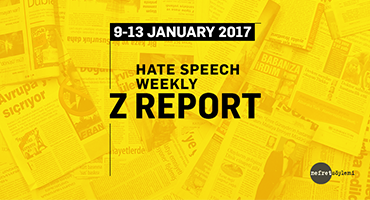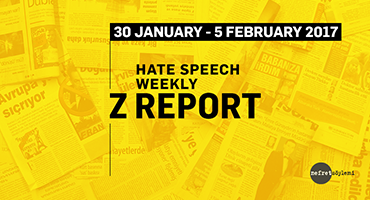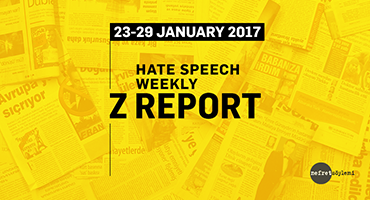Within May 17-24, 2020, three articles that generate hate speech were selected from print media. You can find three articles that contain hate speech against Greeks, Cypriots, Europeans, and others as well as the analyses written about them below.
1.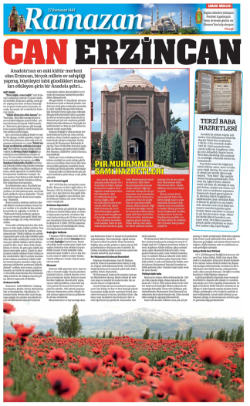
Sait Eken, in his article on the history of Erzincan titled “Dear ERZİNCAN”, attributes historical events to Russian and Armenian identities and foments enmity with the subheading “Armenian and Russian occupation” and the following remark: “Erzincan was occupied by Russians. After that occupation, Armenian gangs tormented the people of Erzincan.” |
Türkiye Gazetesi, 20 Mayıs 20202.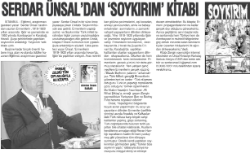
Almina Besra Babar, in her article on Serdar Ünsal’s book “Genocide”, writes: “Serdar Ünsal’s book ‘Genocide’ is out, in which he writes about genocides carried out by Armenians in Iğdır and the region on 1919-1920 and Karabakh, Khojaly and Shusha towns of Azerbaijan in 1922”, “Stating that the Turkish nation will never forget the atrocities and genocides conducted by Armenians, Ünsal said that Armenians’ cruelty is laid bare.” With these remarks and the advertising slogan “Armenians’ cruelty is laid bare in this book”, she foments enmity by criminalizing Armenian identity and generates hate speech. |
Önce Vatan, 18 Mayıs 20203.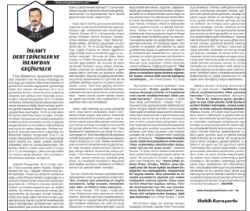
Gülden Damlar uses an offensive and hostile discourse against identities such as Jews, Christians, atheists, and materialist with a conspiratorial tone: “Because on the other side, there are powerful masses ready to attack and lynch Islam and Muslims, hiding behind the idolized conceptions like democracy, freedom, civility, secularity. These masses work with some global Jewish, Christian, Atheist and Materialists groups, which are the arch enemies of Islam.” |
1. Within the scope of the media monitoring work focusing on hate speech, all national newspapers and around 500 local newspapers are monitored based on pre-determined keywords (e.g. Traitor, apostate, refugee, Christian, Jewish, separatist, etc.) via the media monitoring center. While the main focus has been hate speech on the basis of national, ethnic and religious identities; sexist and homophobic discourses are also examined as part of the monitoring work.


